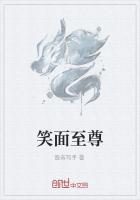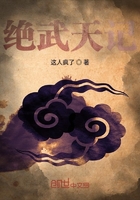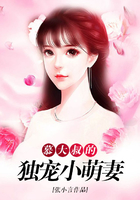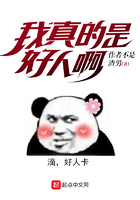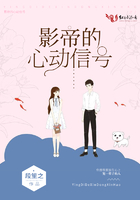Porter’s“Theft”
He Jingming
Katherine Anne Porter was a brilliant contemporary American writer and a radical feminist。Her well known short story“Theft”is often used to explain her views on the world and her artistic features,but as it is such a short and compact story and written in the modernist way,there are still some misinterpretations of it even in the comprehension of some minor details。Typically,we see misunderstanding of some sentences:Zu Ci liu’s explanation of the first sentence is“the heroine holds the purse when she comes in her sitting room from the bathroom”Zu Ci liu。Roads and Ways to Better English(Teacher’s Book)4.
Beijing:Higher Education Press,1990,p。4.。But if the heroine carries the purse with her all the time and from the sitting room into the bathroom and again into the sitting room,she needn’t have come“out of the bathroom to get a cigarette from the package in the purse”(Para。35)。In fact we have learned that immediately after entering her own flat“she had taken the letter out of the purse before she spread the purse out to dry”(Para。31)。Thus the heroine hasn’t carried it into the bathroom。Moreover,when the heroine emerges from the bathroom,one of her hands is“holding her bathrobe around her”and the other,“trailing a damp towel”(Para。1),she has no free hand to hold the purse at the same time。Furthermore,it is not in her manner to guard the purse by carrying it all the time as“she had never locked a door in her life”(Para。40)。Last but not least,if the heroine carries the purse with her all the time,the whole story cannot have taken place as the janitress,who never enters the bathroom,cannot have taken it away。
If this misunderstanding will cause trouble only in our comprehension of details of the story,other misinterpretations will hinder us from the grasp of its theme。Just like Zu Ci liu,Elizabeth Booz explains that the janitress’removal of the purse is an act of theft。Booz further explains that the heroine“belongs to the professional middle class”and the janitress“belongs to the lower class”and she“feels justified in stealing it for her niece”Booz,Elizabeth。A Brief Introduction to Modern American Literature。Shanghai:Shanghai Foreign Language Education Press,1982,p。266.。She thus concludes that the story reflects“contrast and conflict between social classes”Booz,Elizabeth。A Brief Introduction to Modern American Literature。Shanghai:Shanghai Foreign Language Education Press,1982,p265.。Admittedly the heroine supposes the janitress has stolen the purse so she speaks to the janitress in a very sarcastic way,but the janitress also takes the heroine for a thief:She“closed the door very sharply”(Para。34)when taking the purse away。All through the scene the janitress is in hot anger。
When the heroine asks the janitress to give back her purse,the janitress’face is red with anger,saying“What do you mean,your purse?”(Para。36)“Before God I never laid eyes on your purse,and that’s the holy truth”(Para。38)。The janitress doesn’t deny having taken away the purse,she only hints that the heroine is not its rightful owner。The janitress returns the purse to the heroine on hearing the latter’s sarcastic remarks,“Oh,well then,keep it,keep it if you want it so much”(Para。39)。Even a shameless thief would never behave this way。A more reasonable explanation should be like this:the janitress,in a hot temper and perhaps not properly educated,cannot hope to speak to the point until at last when she tells the heroine:“It’s not from me,it’s from her(the janitress’niece)you’re stealing it”(Para。49)。Only on hearing this does the heroine realize that she has been fooled by the man who steals the purse from the janitress’s niece and presented it to her。
Booz says that story is a reflection of class struggle,and Zu Ci liu says that it reflects the hard life of American people in the Depression。Of course their opinions are prevailing,but the present author have a different opinion。Their views are based on misinterpretation of details and therefore are not reliable。And we will miss much fun from a hasty and careless reading of such a story。Now let us follow the heroine’s train of thought as triggered by her loss of the purse,and have a close look at the men who come to her mind one after another in a way very much like a stream of consciousness。
The story is set in the depression。The heroine attended a party on the previous evening。Early in the morning she finds her purse missing。Naturally she begins to recall the immediate past to make sure when and where she loses it。The first man that comes to the heroine’s mind is Camilo。Judging from the context,Camilo is an admirer of the heroine。On a raining night such as this,it is usual for a man to accompany and give help to his girl friend。This is what Camilo tries to do。“‘It is written that we must be rained upon tonight,’said Camilo,‘so let it be together’”(Para。3)。Yet the heroine doesn’t need his company,as his presence only gives her more trouble:She“had walked with him to the station in a pouring rain”(Para。2),whereas without him she might have been running to the station and thus would suffer less from the rain。
As she knows,“he was almost as poor as she was,and when he insisted on a taxi,she immediately refused it,saying,‘You know it simply will not do’”(Para。2)。It is to save Camilo’s face that the heroine agrees to let him come with her。“If she had not feared Camilo would take it badly,for he insisted on the practice of his little ceremonies up the point he had fixed for them,she would have said to him as they left Thora’s house,Do go home。I can surely reach the station by myself’”(Para。2)。Camilo’s helpfulness turns out be“a set of smaller courtesies”and“the practice of his little ceremonies”。He is a dandy。If most men are careless about their clothes as Eddy is,Camilo is an exception。“If he(Camilo)wore a shabby hat it would be merely shabby on him,and he would lose his spirit over it”(Para。2),“Thinking that tomorrow morning he would gaze soberly at his spoiled hat and soggy shoes and possibly associate her with his misery”(Para。5)。In an effort to save his hat,she asks him not to accompany her up the stairs leading to the Elevated,and he“made three quick bows”,“and leaped off through the rainy darkness”(Para。5)。This reveals his instinctive eagerness to protect his new hat from being further ruined by the rain。Her further observation justifies her understanding of Camilo:“As she watched,he stopped at the far corner and took off his hat and hid it under his overcoat。”(Para。5)This suggests Camilo’s foolishness as well as his vanity and shallowness。On the contrary,the heroine’s understanding,sympathy and consideration as well as penetrating insight are seen here。
Roger is the second man she has met the night before。He is another admirer of the heroine。Unlike Camilo,he is frank。He tells her directly that he hides his hat in his overcoat(Para。6)。He is,however,ill behaved,conceited,stubborn and indecisive。When the taxi is running too fast,he curses the driver:“This bird is a homicidal maniac,and I could do with a cocktail myself this minute”(Para。8)。He uses swearwords to the three pedestrians who have nothing to do with him(Para。10)。He has not got enough money for a taxi fare,yet he will not sell his play below the price he sets。In an effort to get rid of his wife,Roger cannot take initiative action but has to wait for the mercy of his wife(Para。13)。And intimate as his relation with her is,his concern for the heroine is shown only in his words about the minor details of life,and when it is time to pay taxi fare,he asks the heroine to share it。Needless to say,Roger doesn’t leave us a good impression。
The third man she encounters is Bill。He is also a playwright(Para。23)。He is wretched,vain,“self pitying and tightfisted”Booz,Elizabeth。A Brief Introduction to Modern American Literature。Shanghai:Shanghai Foreign Language Education Press,1982,p。265.。He invites the heroine to his home only to let her know the reason why he cannot pay the money he owes her(Para。23)。But his flimsy excuse is soon betrayed by his own boasting of his newly bought luxury item(Para。25)with a sum of money much larger than what he owes the heroine。The latter now has not a single coin to jingle in her pocket,yet she doesn’t tell anyone else about it。Now she cannot keep silent any longer。She asks him to pay what he owes her。As a gesture of refusal to repay the money,he even sobs while complaining and expressing his grievances(Para。23)against his wife。Seeing no hope of getting back her money,she just leaves him without any more words with him(Para。26)。
The three men give her nothing but verbal service。Yet they are better than those unnamed men in the story。Among them are three drunken pedestrians in shabby clothes。They are not serious about love and talk in a silly way(Para。9)。No wonder Roger calls them“pure nuts”(Para。10)。Their counterparts are two properly dressed girls。They are well behaved and very reasonable and serious about love(Para。11)。
Another nameless man is the writer of a letter to the heroine。He may want to save the love between them,but his letter is full of clichés,they sound sweet,but they don’t mean anything。He puts all the blame on her for the trouble in their relationship。This justifies her decision to break with him(Para。33)。
The worst of all the men in the story is the one who gives the purse to the heroine as his presentZu Ci Liu holds that the janitress has stolen the purse。But why should a thief announce her coming and close the door with a loud and sharp noise(para。34)。She has taken the purse from the heroine’s room,but it is not stealing。In the consequent argument the janitress and the heroine only mean justify each’s rightful possession of it and to prove the other is the thief,but as the heroine is only insinuating and the janitress is too angry to express her point well until the end of the argument,the heroine and the reader get the truth only at the end of the story。。She must have entertained some sincere affection for him as she prizes the purse very much as a present。She is naturally very upset when she at last knows this purse belongs to the janitress’niece(Para。48)。As the purse does not belong to the man who presents it to her,his affection for her is also worthless。Thus the man has not only stolen the purse from another girl but also stolen the heroine’s heart。Her only fault in it is her trust in this man,which exposes her to his traps。
By now we get the heroine’s general impression of men:shabby,dirty,hypocritical,rude,conceited,wretched,vain,foolish and above all,insincere。When women are in a difficult situation,they cannot hope to get any help from men。This is a world without any protective man that women can admire or depend on。Men,despite their strong physical bodies,are nothing but“scarecrows”(Para。9)。
Women on the contrary have all the good qualities:sincerity,consideration,honesty,sympathy,and penetrating insight,dignity,integrity,independence,self respect,cleverness,graceful manners,and beauty。The heroine here well displays all these fine qualities。The very fact that she has so many admirers suggests her beauty。She is broad minded:When Bill refuses to pay her the money of which she is in desperate need,she just“let it go”(Para。30)。She doesn’t expect men’s help。She is clever and knows well Camilo’s mind(Para。2)。She knows how to contradict Bill when he is complaining about his difficulties。She is poor but she will not let her admirers pay a single cent for her。She is capable:She is a writer and earns her own living。She never asks for mercy from other people。She has good manners:No matter what she thinks of these men,she pays them due respect。Her confrontation with the janitress is a model of self control。And their quarrel suggests that if there is any conflict among women,it is caused by men’s evil deeds。
This artificial attribution of all bad qualities to men and all good ones to women is reinforced by Porter’s deliberate use of nameless characters。The heroine is nameless not because it“helps the reader to identify himself with her”(Booz,265),but because she represents all women in general。The same is true of the nameless men:the letter writer,the three pedestrians and the thief of the purse,they represent the general character of men。The ones who are given names only suggest some minor differences among men。
Why should the heroine,with so low an opinion of men,still get on with some of them and show due respect?The names of these men may suggest the answer。Eddie sounds like eddy,circular movement of air or water,which may suggest the overwhelming current:Yes,most men pay little attention to clothes just as Eddy does。So women will disregard most men just as the heroine does。Camilo sounds like camellia,a decorative flower pleasing to the eye,which is one function of those few dandies。The heroine gets along with him only for this reason,as Camilo is a rare exception。Roger is a British euphemism for having sexual intercourse with someone,this name suggests another function of men:satisfying women’s sexual desire。Bill means an amount expended or owed。So women have to deal with some men in economic activities,but in many cases it is the men who owe the women rather than vice versa。In short,if women still have contact with men,it is only to satisfy women’s basic physical needs and there is no honorable man in women’s spiritual world。
Thanks to this writer’s great artistic power and subtlety,we often read her story superficially,without realizing its hidden message:the radical disgust for the men。No general statement of the author’s or the heroine’s opinion of men is made,but it is shown through the combination of details provided here。The third person limited point of view makes the story sound more objective and thus easier for the reader to accept。The rain definitely adds to the gloomy atmosphere。Thus her great art has masked the absurdity of the conclusion。In an age of male dominance,this story,together with many of her other short stories,is an outcry of awakened and discontented women against sex superiority。
References:
Porter,Catherine Anne。“Theft”,Roads and Ways to Better English(Student’s Book)4,compiled。By Zu Ci liu。Beijing:Higher Education Press,1990.10.A Black Divinity in a Moral Wasteland
——A Textual Analysis of Dilsey in William
Faulkner’s The Sound and the Fury
Xie Ping
It is not until the last part of The Sound and the Fury that Faulkner allows us to adopt a view detached from the commotion of the Compson brothers’obsessive interior monologue。From such a comparatively objective point of view,our attention is directed most of the time toward Dilsey,about whom Faulkner writes nothing when he adds the“Appendix”to make things more clear。The reason,I think,is that Dilsey is almost a god like figure on the moral wasteland of the Compsons。Although she is a Negro cook for the once aristocratic family and thus of a much humbler social stratum,her moral intergrity raises her high above their moral deterioration。She believes in God,which gives her power to survive the corruption of the Compsons。Her omniscience about the family,her tolerance of their moral degradation,and her endurance of their discrimination are just like the merits of God she believes in and we generally know so that they do not require an entry in the“Appendix”to clarify。
At the beginning of this chapter,Faulkner gives us a detailed and highly symbolic deion of Dilsey that focuses on her surroundings,appearance,and facial expression。It is on the“bleak”and“chill”morning of Easter Sunday that we first see Dilsey in the house of the Compsons(165)。While it is the day commemorating the resurrection of Christ,to Dilsey the light of the morning“seem[s]to disintegrate into minute and venomous particles,like dust that,when Dilsey open[s]the door of the cabin and emerge[s],needle[s]laterally into her flesh”(italics mine,165)。The malicious light is like the foul air Dilsey breathes in the Compsons’realm。Jason(the son)regards her as“somebody in the kitchen to eat up the grub the young ones cant tote off”(116)。
Caroline Compson protests against setting the cradle for Quentin(the granddaughter)in Dilsey’s room for fear of being“contaminated by that atmosphere”(125)。Quentin(the granddaughter)“knock[s]down”Dilsey’s hand and calls her“You damn nigger”right after Dilsey shields her from Jason’s attack(117)。Although Dilsey is the person who“raised ev’y one”of the young Compsons,her contribution is not recognized or appreciated by them(125)。Instead,she is always despised and repeatedly insulted。Standing in such malicious light,Dilsey appears as a person whose“muscle and tissue[are like]courage or fortitude which the days or the years ha[ve]consumed until only the indomitable skeleton[is]left rising like a ruin or a landmark above the somnolent and impervious guts”(italics mine,165)。Dilsey’s flesh can be consumed by the demanding Compsons,but her skeleton shows no sign of failing。Its rigidity is like Dilsey’s moral integrity that protects her from the erosion of her surroundings,and makes her the“sworn enemy”of the vicious Jason(the son)and the only person he“fear[s]and respect[s]”(212)。
Dilsey lifts her face to the light“with an expression at once fatalistic and of a child’s astonished disappointment”(italics mine,165)。Dilsey’s fatalistic expression marks the difference from Jason’s pessimistic obsession with his ill fate。She accepts life as it is,and her placid and honest attitude towards life constitutes a sharp contrast to the chaotic confusion characteristic of the Compsons。At this moment Dilsey is disappointed because she finds the weather is not good on this Easter Sunday when she is going to church to attend the Easter Sermon,which is almost the most important thing in her life。But in describing her disappointment as a“child’s”and later her way of descending the stairs as“a small child does”,Faulkner seems to imply a touch of guilelessness in Dilsey’s character that makes it possible for her to adopt an indiscriminate and tolerant attitude towards the Compsons(165,169)。With her integrity and tolerance,the Dilsey we see on this Easter Sunday morning witnesses,endures,survives and contrasts with the degradation of the Compsons。
When Dilsey catches Caddy in the tree on the night Dammudy dies,she calls Caddy,“You,Satan”(29)。This spontaneous response has almost the effect of prophecy。Caddy’s loss of virginity is the direct cause for her brother Quentin’s suicide,which in turn makes the sacrifice of Benji’s pasture go in vain。Her pre marital pregnancy costs Jason the promised job and thereby initiates his obsession with his ill fate。Her daughter Quentin also suffers from her motherless upbringing and becomes wild at an early age。Despite the misfortune Caddy has caused,Dilsey does her justice in allowing her to see her daughter secretly。She even interrogates Jason:“I like to know whut’s de hurt in letting dat po chile see her own baby”(130)。Like an omniscient God,Dilsey foresees evil before it takes place,endures evil when it cannot be avoided,and takes care of the sufferers as best as she can。
Not only is Dilsey like an omniscient God,she believes in the power of God that penetrates every lie and gives everyone his due。When the one hand clock in the kitchen strikes five times,Dilsey knows and says that it is actually“[e]ight o’clock”(171)。That she restores time to its order contrasts with Quentin’s effort to twist and destroy time。Quentin lives in his lie of committing incest with Caddy,and therefore is afraid of facing time that cannot lie and cannot be reversed。Dilsey’s matter of fact attitude towards time comes from her belief that what is important is the ultimate time when every soul has to face the Judgment。When Caddy tells her that the change of Benji’s name will bring him good luck,she says,“Name aint going to help him。Hurt him neither”(37)。She believes there is a time when her name“will be in the Book”and“they’ll read it for[her]”(38)。While Quentin imagines he can lie about committing incest and cheat God,Dilsey believes that nothing can escape His eyes。That’s why she thinks there is no point in changing Benji’s name,because God knows everything。
Dilsey is the opposite of Jason(the son)in almost every way。While Jason thinks“nothing whatever of God one way or the other”,Dilsey“[sits]bolt upright”during the Easter Sermon(212,183)。She is so moved by the sermon that“[t]wo tears slid[e]down her fallen cheeks,in and out of the myriad coruscations of immolation and time”(183)。
Dilsey’s tears are what are missing in Jason’s emotional wasteland where feelings have given way to the calculating of fortune and the futile defending of family honor。Jason can feel nothing but“sort of funny”at the funeral of his father(127)。His theory of“[o]nce a bitch always a bitch”betrays the cruelty and unforgivingness that contrast with Dilsey’s tolerance of Caddy and care of Miss Quentin(113)。While Jason declares,“I give every man his due,regardless of religion or anything else”,he is in fact the very person who thinks“what this country need is white labor”(120)。Whereas Jason hides Benji from the public view to protect the family honor,Dilsey takes him to church because he is also the“Lawd’s child”(117)。As Jason is obsessed by the idea that he is unfairly deprived of what should have been his share of privilege,he is always oriented towards the past-towards how to take advantage of every opportunity to make compensation for his lost fortune so as to restore justice for himself。On the contrary,Dilsey is future oriented in the sense that she believes in the Day of Judgment,which allows her to assume a calm,confident and tolerant attitude towards her daily life。Despite her inferior social status,Dilsey finally gains the upper hand over Jason,whose clawing for every bit of money that comes to hand only makes his loss more deplorable when his niece outmaneuvers him。
Dilsey’s sphere in the Compsons’realm is the kitchen。She cooks food there to feed the Compsons。She reads the correct time from the broken clock there to restore the order of the chaotic world。She sees what is happening around her from the window of the kitchen and understands what that means。She looks upwards towards the realm of the Compsons“as if her eyes[can]and[do]penetrate the walls and ceilings”(168)。She tells Frony,“I’ve seed de first en de last”,and it is true that she witnesses“the rotten family in the rotting house”and endures their discrimination(185,212)。But she is not a helpless victim。Instead,as she says to Jason,she“got mo heart dan dat,even if hit is black”(130)。She believes in God and she is like God safeguarding the moral debris of the Compsons。
References:
Faulkner,William。The Sound and the Fury。Ed。David Minter。New York:W。W。Norton&Company,Inc。,1994.
A Critical Study on Zhu Guangqian’s
Aesthetic View of Tragic Pleasure
Li Yue
Tragedy is generally regarded as the highest form of literary art and those who have excelled in it are viewed as the world’s greatest literary geniuses。They were believed to be the most profound psychologists before the science of psychology had ever come into being。Theories on Tragedy mainly concern these three questions:What is tragic pleasure?Why do people take pleasure in Tragedy?And what produces tragic pleasure?In spite of the efforts made by philosophers and critics,the solution to the problem of tragic pleasure remains as remote as ever。
Du Bos and Croce lean towards the pleasure of feeling。Addison illustrates tragic pleasure as a combination of the pleasure of recognition and the pleasure of relief,whereas Burke views it as a pleasure answering a sympathetic need。Most of these theories fall short of meeting the demands of modern psychology concerning the source of human emotions。None of them except Zhu Guangqian pays attention to the power of the psychology of tragedy。In The Psychology of Tragedy,Zhu attempts to give a critical study of various theories of Tragedy in the light of psychology,and to define the relation and difference between the tragic pleasure and pleasure of other modes,such as that evolved by the beautiful and the sublime。Zhu patterns his theory with the realization that a solution to the origin of tragic pleasure would throw light on many other psychological questions,such as how the attraction to beauty shapes an individual’s sense;and how the pleasure gained from all forms of art mirrors human spiritual reality and spiritual convictions。Whoever fully explains the nature of tragic pleasure would also discover the key to the essence of the relationship between the aesthetic sense and the psyche of human being。
In The Psychology of Tragedy,Zhu argues that the enjoyment of Tragedy,a concrete feeling,not a mere abstract notion,essentially equates with aesthetic contemplation。In the past,some critics with little philosophical training and aesthetic taste have failed to differentiate tragedy as a form of art from the suffering experienced in real life。Tragedy represents an idealized life or a life set in an artificial frame。We should not respond to the calamities and misfortunes in tragedy in the same way as we respond to those in reality,just as we do not respond to the image of a beauty in a picture by Manet in the same way as we respond to a similar beauty in the street。And a realistic account of murder that we can find every day in newspapers never gives the same impression as Macbeth。Therefore tragic emotion distinguishes itself from such real life responses as mourning the death of a beloved person or rejoicing over the defeat of an enemy。
By applying Bullough’s theory of“Psychological Distance”,Zhu assesses the main trend of European aesthetic thought from Kant to Croce,and characteristics of formalism that have inherent weaknesses。The great merit of“Psychological Distance”lies in that while it emphasizes the autonomy of aesthetic experience it does not neglect the conditions favorable to its initiation and maintenance。According to Zhu,we may describe“distance”as a metaphorical expression for the detachment of the aesthetic object from its association with everyday life。Beautiful things generally distinguish themselves by remoteness as one of their characteristics。For instance,a traveler from China who finds himself for the first time in Egypt generally has the impression that everything there has a peculiar charm of its own。
Therefore,the secret of the success of art lies in a proper adjustment of distance。As Adorno indicates,“What is most desirable both in production and appreciation is the utmost decrease of distance without its disappearance。”Fred Rush,The Cambridge Companion to Critical Theory(Cambridge University Press,2004),147.Frye also indicates that if the imaginative powers do not prevail over emotional impulses,a contrary effect would result:without the power of poetic expression,tragedy actually intensifies sorrowful emotion instead of converting it into something pleasurableNorthrop Frye,The Educated Imagination(Toronto,CBC Enterprises,1985),51-53.。For instance,a woman who has recently lost her child would dissolve into tears on seeing the representation of a mother with a dead child。Such a spectacle,instead of giving her pleasure,would only aggravate her grief。Zhu comes to a conclusion that the properties of realism often threaten the spirit of Tragedy。The misfortunes and calamities in tragedy can never confound themselves with those in real life,for the misfortunes and calamities in tragedy exhibit the qualities produced by temporal and spatial remoteness,such as the exceptional nature of the tragic characters,situations and actions,artistic conventions and techniques,an intense lyrical note,a supernatural atmosphere,and finally any unrealistic but suggestive staging and acting。
Zhu also examines some of the most important theories of tragic pleasure proposed by previous studies。He starts with the“Malevolence Theory”,which holds that in human nature there exists something of primitive savage cruelty and something essentially egoistic and sadistic,by virtue of which man exults at the defeat of an enemy,takes delight in the infliction of pain and even extracts a satisfaction from the suffering of friends。Therefore,to rejoice at the misfortunes of our fellows demonstrates a clear sign of malignity。Taking pleasure in the representation of tragic events implies that people tend to rejoice at the misfortunes of others。Tragedy captivates us because it foregrounds our own better fortune by representing the distress and suffering of men and women who in every aspect outshine us。We would respond that,conversely,tragedy brings us into contact with nobility and grandeur and thereby awakens the noble sense in our nature and finally lights up a divine spark in our own soul。
Contrary to the malevolent view,Burke,the leading exponent of Sympathy Theory,holds that the noble spirit in man reveals itself in tragedy and man takes pleasure in the sight of suffering because he sympathizes with the sufferer。Tragic pleasure results from the pity awakened in us by others’misfortunes。In tragedy,pleasure and pain do not neutralize each other,and they often blend with each other to form a mixed feeling。The pain does not remain to the end and it turns into pleasure so as to swell the positive pleasure produced by pity,fear and the visualization of beauty。Burke seems to claim that the more tragic the situation,the greater sympathy we need,and consequently the higher pleasure we experience。But in fact,as Zhu points out,there exists a limit to the pleasurability of a tragic situation。
Beyond that limit,tragic situation gives pain instead of pleasure。On a stage,such a conversion of pain into pleasure owes much to the relief of pain through actors’bodily activities。It also owes much to artistic expressions:the pain subdued and transfigured by the artists’creative imagination projects the emotions onto their artistic representations。Tragedy would not melt pain into pleasure and would turn pessimism into a heightened sense of life without an excellent artistic representation。Besides,a proper appreciation of tragedy requires a fine taste and aesthetic culture。Everyone may experience a kind of the pleasure at the sight of cock fighting or a gladiatorial show,but few could really experience the pleasure peculiar to tragedy。The ordinary man who lacks imagination and aesthetic detachment is likely to be shocked by a catastrophe and unable to reconcile his moral sense with the unhappy event。For instance,one can recall that terrible scene in King Lear where Corn and Regan pluck out Gloucester’s eyes on the stage。This horrible scene offends an ordinary man’s moral sense and replaces aesthetic pleasure by disgust and indignation。
Zhu then discusses pity and fear together with the sense of sublimity。Some critics regard pity in tragedy as a kind of moral sympathy directed to some distinctly external object。Zhu refutes that and argues that by virtue of sublimity the enjoyment of tragedy equates with an aesthetic emotion,and tragic pity consequently parallels an aesthetic sympathy。In real life,the dread of pain always preoccupies man in a world full of evils and miseries。So freedom from pain becomes the greatest blessing that man can expect。The sublime element in tragedy forces its way into our imagination and emotion,expands and uplifts them to its own dimensions,enabling us to transcend our own limits,identify ourselves with it,and share its immense greatness。Therefore,while the tragic hero struggles against miseries in the hope of escaping the pain produced by sufferings and evils,spectators do not direct their pity to the tragic hero as a distinctly external object,but as with whom they sympathetically identified with the spectators themselves。In this sense,sublimity more or less likens self pity which one sometimes feels for oneself when he has to face an irretrievable fate。
Fear,an indispensable element in the sense of the tragic,does not parallel with the fear experienced in actual life。Mere fear does not inspire us but leaves us gloomy and depressed。On the contrary,the heroic quality in tragedy inspires us by its nobility and grandeur。Mere terror thrills us with fear,whereas the heroic quality thrills us without。The tragedy must produce both terror and the heroic quality simultaneously。In tragedy,the object that moves us possesses extraordinary greatness either in extent or in power as its essential feature。And images of immeasurable magnitude thrust upon us a sense of our own feebleness and insignificance。The tragic differs from mere sadness in that it possesses an inspiring or uplifting power which the latter lacks。Zhu then defines tragic pity as a sub species or a mode of the sublime,sharing with all of the qualities inherent in tragedy the common property of fear inspiring but uplifting power。The sense of sublimity excites two different emotions:fear first,and then admiration。The sense of sublimity qualifies as the most important ingredient of the tragic。
Zhu believes Hegel’s theory on tragedy has its weakness too。Hegel maintains rational laws can explain or justify everything in the universe。He believes that“above pity and fear,there soars a feeling of harmony”Frederick。C。Beiser,ed。。The Cambridge Companion to Hegel(Cambridge University Press,2004),97.which tragedy gives by revealing eternal justice。Though this justifies that tragic conflict arises from the collision of two equally justifiable but one sided ethical forces and ends in the triumph of eternal justice,the weakness of this view is obvious,because Hegel seems to base his affirmation on a highly developed humanity and makes desperate efforts to show that in tragedy the hero embodies some ethical value and the catastrophe in tragedy still symbolizes a triumph of eternal justice。The hero’s personality is shaped merely by external forces and it has nothing to do with his own spiritual convictions。The flaw in this hypothesis lies in that it inflates the external and ideal forces and overlooks the power of the individual’s own spiritual reality and the psyche。
In The Psychology of Tragedy,Zhu tests the validity of the theories of hedonists,vitalists and Hegel by applying them to the problem of tragic pleasure。His solution to the problem of tragic pleasure,the adequate analysis of the relation between pain and pleasure in the terms of psychology and the definition the relation and difference between tragic pleasure and pleasure of other kinds,such as those derived from the beautiful and the sublime,contribute much to aesthetics。His interpretation of the Apollonian and Dionysian Spirits coined by Nietzsche further marks the significance of his view。Zhu attempts to define an intrinsic value of tragedy that distinguishes itself from the value of goodness and truth values found outside of tragedy。However,deeply influenced by Nietzsche’s preference for disinterestedness and aesthetic detachment,Zhu unconsciously overestimates the intellectual and rational role in aesthetic contemplation。
Some questions arise from Zhu’s assertion that a great actor,while simulating the dramatic emotions in a life like manner,should not experience them as actual emotions。Good acting and proper appreciation require both sensibility and judgment,as well as participation and detached contemplation。Can judgment and emotion coexist side by side in the aesthetic experience?Do they fuse together and will their fusion cause the spectator to weep pleasurably before the representation of a tragic event?Here,the question merits our attention:What role do aesthetic pleasure and emotional pleasure respectively play in the contemplation of tragedy?We may define aesthetic pleasure as a sort of pleasure in which people stand aloof and unmoved by the whirlpool of passions which carries away their naive and sentimental feelings。People engross themselves in a thousand intellectual considerations which would wipe away all traces of emotions。With the absence of emotional involvement,people analyze the drawing of characters,criticize the diction and versification of the lines,ask themselves whether the scenery effect matches the dramatic atmosphere,think of the different interpretations of certain passages,and wonder whether the authors mean to have a moral in the play。
However,one has to remember the fact that when the importance of the intellectual is overstressed,excessive criticism often spoils the appreciation of a good tragedy。Zhu overemphasizes the intellectual elements in an aesthetic experience without taking sufficient account of the emotional。He supposes that pleasure and pain appear independent of innate properties of tragedies that have nothing to do with our interest and attitudes。For him,emotional elements would vitiate aesthetic pleasure。This preference for the intellectual and rational elements to the emotional and sensuous may stem from Nietzsche’s claim that“only as a pure intellectual phenomenon exists,the world would be eternally justified。”
Bernd Magnus and Kathleen Higgins,ed。。The Cambridge Companion to Nietzsche(Cambridge University Press,2004),17.This implies that intellectuality has the greatest power to make life worth living。Zhu denies the existence of emotional elements in the aesthetic experience,falsely attributes aesthetic pleasure to pure intellectual responses and utterly excludes passions and sensuous particulars from aesthetic contemplation。Actually,aesthetics has much to do with the emotional and sensuous reception of an aesthetic object。If aesthetic contemplation disconnects itself utterly from man’s desires and passions,how can rationality alone move actors to enthusiastically engross themselves in acting and spectators to sympathize with tragic heroes on the stage?Things become pleasant or painful only when they in some way relate to our interest and only when they call forth a definite mental attitude。According to Adorno,“Aesthetic contemplation involves our cognitive faculties in some other way and we often deploy a sentimental reaction for understanding the world。”Fred Rush,ed。,161.
It seems that Zhu confuses the aesthetic attitude with the critical attitude。He holds that tragic pleasure mostly results from an intellectual realization of moral significance instead of an immediate feeling。In fact,when the spectator does set himself to reflect on the moral significance of a tragedy,he has to do so cold heartedly without experiencing the true tragic pleasure。Aesthetic value is not the equivalent of moral,practical and philosophical value。A work of art may contain part or all of these values;but these values do not constitute its unique value as art。“Artworks are things whose value appears to lie in their very nature;hence they appear intrinsically valuable,valuable in and of themselves。”Rush,ed。,159.
In addition to the refuting of the existence of the emotional elements in aesthetic experience,Zhu believes that what the lower sensations can sense are but nonaesthetic properties and one cannot have a real aesthetic experience in theatre unless he abandons the lower senses in appreciating the beauty of a play’s music,action and verse。Let us take sensation in the light of aesthetic contemplation。Sensation is a door through which we enter into the experience of beauty;and it serves as the foundation upon which all aesthetic tastes and judgment rest。“Beauty does not float free。Certain nonaesthetic properties are responsible for the aesthetic properties and without those nonaesthetic properties,the aesthetic properties would not have been instantiated。”Bernd Magnus and Kathleen Higgins,ed。,97.One cannot think that beauty is bare and it is essential to aesthetic thought to realize that the aesthetic properties of a thing arise from its nonaesthetic properties。From the time of Plato,who argues for“fair sights and sounds”only,people have recognized vision and hearing as the preeminently aesthetic senses。These two senses provide the basis for all the arts。
The theatre performed play,a combination of sound and sight,deploys vision and hearing as the natural media to express its meaning。Sounds-words or tones-convey thoughts and feelings;so do visual sensations-the facial expression or gesture communicate the inner life of the speakers。The unalienableness of sight and sound results from their expressiveness and their connection with the life of feeling and thought。Thus,a tragedy performed on stage without enthusiastic action and well constructed verse would obscure the excellence of the tragedy,and fail to inspire spectators to response aesthetically。Similarly,one who abandons the values of sensations would sink into a position of some extreme theoreticians who take universal law into account only and indulgently disregard individual enjoyment and judgment。In an aesthetic experience,sensations essentially parallel a power to free people from their concerns for the practical or the instinctive and to lift them into the higher region of sentiment。For instance,fine wines and perfumes offer tastes and odors sought and enjoyed apart from the satisfaction of hunger。In a cathedral,the odor of incense fusing with the chorale and architecture,instead of a mere odor pleasing the nostrils,may appear as an important element in religious devotion。Therefore,every kind of sensation,however low,may become aesthetically beautiful,not degrading aesthetic contemplation,but enriching and ennobling it。
Furthermore,as is generally believed,both content and form play their parts in art。The content of an artwork consists of the essential and universal interests of humanity and the spiritual forces which rule the world of man’s will and action。But art cannot be based on pure abstraction but has to express itself through a certain medium,namely,form。The spiritual forces in content have to be materialized in the form of human emotions such as love,hatred,jealousy,parental tenderness,honor,duty,loyalty,patriotism and devotion to religion。The personages in tragedy incarnate these emotional forces。Each of the tragic characters identifies himself or herself with at least one of these emotions and carries it through to the end with an uncompromising self consistency。People who attach too much attention to intellectual elements and give up emotional excitement would fail to share these emotions with the playwrights and actors。Deprived of the feeling for the values of sensation,men may appreciate artworks rationally and intelligently,but they may overlook the aesthetic value of such artworks。They may,for example,appreciate the profound or interesting ideas in poetry,but unless they can connect them with the rhythm values of the sounds of the words,they have only an intellectual or rational,not an aesthetic experience。
Despite such limitations,Zhu comes perhaps nearer to the truth of tragic pleasure than most previous theorists。For one thing he has the advantage over most theorists on tragedy:He collects the different arguments of previous theorists and weaves them into an organic whole,and finally defines tragic pleasure with his unique formulation。As he justly remarks,though tragedy tries to solve the same ultimate problems of Good and Evil as religion and philosophy,its spirit is alien to both。Religion and philosophy reduce the sense of sublimity to a religious faith and a philosophical dogma,whereas tragic pleasure distinguishes the sense of sublimity on the strength of its aesthetic detachment。Tragic pleasure does not content itself with any result of judgment or emotional relief。It indeed stems from aesthetic contemplation which is neither logically explicable nor morally justifiable。By emphasizing the aesthetic value of tragedy,he has contributed to the theoretical development of the study on tragic pleasure。Zhu,more than any previous theorists on tragedy,makes it clear to us that the enjoyment of tragedy springs primarily from an aesthetic experience independent of any personal reference。He rightly identifies pity and the sense of sublimity with aesthetic sympathy and analyzes the notion of tragic pleasure,taking human psychology into account。
References:
[1]Fred Rush,ed。。The Cambridge Companion to Critical Theory。Cambridge university press,2004.
[2]Paul Guyer,ed。。The Cambridge Companion to Kant。Cambridge university press,2004.
[3]Bernd Magnus and Kathleen Higgins,ed。。The Cambridge Companion to Nietzsche,Cambridge university press,2004.
[4]Frederick。C。Beiser,ed。。The Cambridge Companion to Hegel,Cambridge university press,2004.
[5]Northrop Frye,The Educated Imagination,Toronto,CBC Enterprises,1985.
[6]朱光潜,悲剧心理学——各种悲剧快感理论的批判研究[M]。北京:人民文学出版社,1983.
[7]朱光潜,西方美学史[M]。北京:人民文学出版社,2003.
[8]朱光潜,文艺心理学[M]。北京:生活·读书·新知三联书店,2005.
[9]尼采,悲剧的诞生[M]。周国平,译,太原:北岳文艺出版社,2004.渴望“洁白的床”
——浅析《占有》中的两性和谐意识邢凌


![[苏]中等教育课程改革理论发展与列德涅夫](https://i.dudushu.com/images/book/2019/09/28/055817000.jpg)



